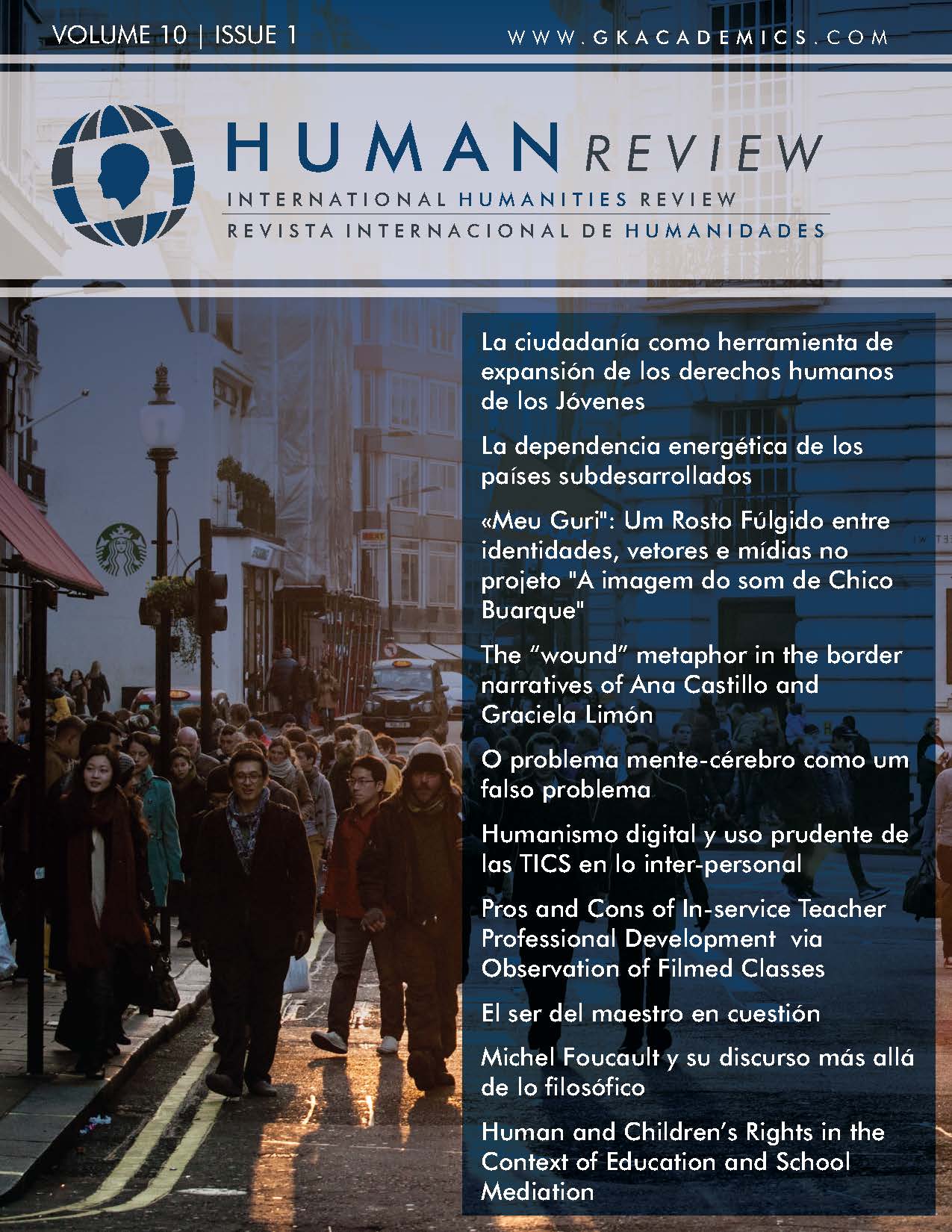The Mind-Brain Problem as a False Problem
Keywords:
Bioevolution, Brain, Mind, Cognition, Artificial Intelligence (AI), Deterministic Systems, Orthodox Cognitivism, Critical philosophy of technologyAbstract
Orthodox cognitivism sees biology and bioevolution as phenomena that are totally despicable and irrelevant in relation to the mechanism and functionalist determinism that it uses as a premise and logical tool to try to understand biological reality. Our aim in this article is to draw attention to the fact that there is no reliable evidence to support this kind of mechanistic view. How could the part be equivalent to the whole, the content to the continent, a residue of the operation vital to the operation itself? In short, the mind-brain problem that cognitivism creates for itself —as we intend to demonstrate— is actually a false problem.
References
Barbieri, M. (2012). Organic codes and the natural history of mind. In Swan, L. (org.), Origins of mind, 8, biosemiotics (pp. 21-52). Springer Science+Business Media.
Bergson, H. (1979). A evolução criadora. Zahar Editores.
Cabrera, M. (2019). Del racionalismo a la ciencia cognitiva: la ciencia que humaniza al hombre. HUMAN REVIEW. Revista Internacional de Humanidades, 7(2), 45-50. https://doi.org/10.37467/gka-revhuman.v7.1971
Changeux, J. (1992). Jean-Pierre Changeux, “o homem dos neurônios”. In Pessis-Pasternak, G. (org.), Do caos à inteligência artificial: quando os cientistas se interrogam (pp. 153-164). Editora UNESP.
Changeux, J. e Connes, A. (1995). Matéria e pensamento. Editora UNESP.
Childe, G. (1978). A evolução cultural do homem. Zahar.
Dalgalarrondo, P. (2011). Evolução do cérebro: sistema nervoso, psicologia e psicopatologia sob a perspectiva evolucionista. Artmed.
Damásio, A. (2018). A estranha ordem das coisas: as origens biológicas dos sentimentos e da cultura. Companhia das Letras.
Dawkins, R. (2009). O gene egoísta. Companhia das Letras.
Dewey, J. (1974). Experiência e natureza. (Coleção Os pensadores). Abril Cultural.
Foley, R. (2003). Os humanos antes da humanidade: uma perspectiva evolucionista. UNESP.
Galimberti, U. (2006). Psiche e techne: o homem na idade da técnica. Paulus.
Gardner, H. (1995). A nova ciência da mente. EDUSP.
Godfrey-smith, P. (2019). Outras mentes: o polvo e a origem da consciência. Todavia.
González Quirós, J. L., & Díaz Pardo de Vera, D. (2021). Theory of Mind: From Artificial Intelligence to Hybrid Intelligence. TECHNO REVIEW. International Technology, Science and Society Review, 9(2), pp. 103-119. https://doi.org/10.37467/gka-revtechno.v9.2816
Harari, Y. N. (2016a). De animales a dioses. Debate.
Harari, Y. N. (2016b). Homo Deus: uma breve história do amanhã. Companhia das Letras.
Henning, B. (2013). Of termites and men: on the ontology of collective individuals. In Henning, B., & Scarfe, A. (orgs.), Beyond mechanism: putting life back into Biology (pp. 233-251). Lexington Books.
Lorenz, K. (1995). Os fundamentos da etologia. EDUSP.
Maturana, H. y Varela, F. (2003). De máquinas y seres vivos: autopoiesis: la organización de lo vivo. Lumen.
Merleau-Ponty, M. (2018). Fenomenologia da percepção. Martins Fontes.
Mithen, S. (2002). A pré-história da mente: uma busca das origens da arte, da religião e da ciência. Editora UNESP.
Morin, E. (1992). Edgar Morin, contrabandista dos saberes. In Pessis-pasternak, G. (org.), Do caos à inteligência artificial: quando os cientistas se interrogam (pp. 83-94). Editora UNESP.
Morin, E. (1996). Complexidade e liberdade. In Morin, E., Prigogine, I. et al. (orgs.), A sociedade em busca de valores: para fugir à alternativa entre o cepticismo e o dogmatismo. Instituto Piaget.
Morin, E. (2001). O método 2: a vida da vida. Sulina/Meridional.
Morris, D. (2004). O macaco nu: um estudo do animal humanoRecord.
Quaresma, A. (2020). Inteligência artificial e bioevolução: Ensaio epistemológico sobre organismos e máquinas [Dissertação de mestrado pelo programa de pós-graduação em Tecnologias da Inteligência e Design Digital (TIDD), Pontifícia Universidade Católica de São Paulo (PUC/SP)]
Quaresma, A. (2021). Inteligência artificial fraca e força bruta computacional. TECHNO REVIEW. Revista Internacional de Tecnologia, Ciência e Sociedade, 10(1), pp. 67-78. https://doi.org/10.37467/gka-revtechno.v10.2815
Ravoux, J. (2000). A unidade das ciências: explicar a natureza e compreender o homem. Instituto Piaget.
Searle, J. (1998). O mistério da consciência. Paz e terra
Searle, J. (2002). Intencionalidade. Martins Fontes.
Searle, J. (2006). A redescoberta da mente. Martins Fontes.
Searle, J. (2010). Consciência e linguagem. WMF/Martins Fontes.
Searle, J. (2017). Mente, cérebro e ciência. Edições 70.
Shubin, N. (2008). A história de quando éramos peixes: uma revolucionária teoria sobre a origem do corpo humano. Campus/Elsevier.
Sterelny, K. (2010). Minds: extended or scaffolded?. Phenomenology and Cognitive Sciences, 9(4), 465-481.
Varela, F. (2017). Conhecer: as ciências cognitivas, tendências e perspectivas. Instituto Piaget.
Varela, F., Thompson, E. e Rosch, E. (1991). A mente corpórea: ciência cognitiva e experiência humana. Instituto Piaget.
Wheeler, M. (2005). Reconstructing the cognitive world: the next step. MIT Press.
Whitehead, A. N. (2009). O conceito de natureza. Martins Fontes.
Downloads
Published
Issue
Section
License
All articles are published under an Attribution-NoDerivatives 4.0 International (CC BY-ND 4.0) license. Authors retain copyright over their work.

